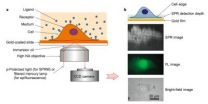(Press-News.org) Philadelphia, PA, August 27, 2012 – About 24,000 people are killed by lightning every year, with about 10 times as many people injured. The Wilderness Medical Society has issued important new practice guidelines for precautions that can lower the likelihood of being killed or injured and recommendations for effective medical treatments post-strike. These guidelines appear in the September issue of Wilderness & Environmental Medicine (www.wemjournal.org/article/S1080-6032(12)00180-9/fulltext).
Updating the 2006 guidelines, a panel of experts chosen for their clinical or research experience convened at the 2011 Annual Meeting of the Wilderness Medical Society in Snowmass, CO. Their task was to develop evidence-based practice guidelines for the prevention and treatment of lightning injuries to guide clinicians and disseminate knowledge about best practices.
"With some basic prevention strategies and common sense the vast majority of lightning injuries can be prevented," commented Chris Davis, MD, Wilderness Fellow and Clinical Instructor, University of Colorado Hospital, Department of Emergency Medicine, Aurora, CO.
Lightning-related deaths in the United States have declined consistently over the last 50 years to approximately 40 per year. More than 80% of victims are male and most deaths occur in individuals between 20 and 45 years of age. The prevention strategies outlined in these guidelines have the potential to reduce these fatalities and injuries further.
Using the American College of Chest Physicians classification scheme for the quality of evidence and recommendations, the panel identified 5 stronger and 2 weaker recommendations concerning prevention strategies. These include taking shelter when thunder is heard and avoiding bodies of water during lightning events.
The mechanism of sudden death from lightning strike is simultaneous cardiac and respiratory arrest. In many victims, despite return of spontaneous circulation (ROSC), a second cardiac arrest may occur if ventilation is not supported. This highlights the need for a "reverse triage" system for lightning strike victims where priority is initially given to those individuals without vital signs or spontaneous respirations. This and 17 other strategies for the treatment of injuries are included in the guidelines.
The panel concludes that "This article provides a summary of available evidence for the prevention and treatment of lightning injury. Most available data are based on small, retrospective case reports or series because the prospective study of lightning injuries is not logistically and ethically possible. Although the strength of the overall evidence is limited, the authors believe that many recommendations can be strongly supported as there is little risk of associated harm."
INFORMATION:
WMS issues important new practice guidelines for prevention and treatment of lightning injuries
Published in Wilderness & Environmental Medicine
2012-08-28
ELSE PRESS RELEASES FROM THIS DATE:
New imaging technique homes in on electrocatalysis of nanoparticles
2012-08-28
By modifying the rate at which chemical reactions take place, nanoparticle catalysts fulfill myriad roles in industry, the biomedical arena and everyday life. They may be used for the production of polymers and biofuels, for improving pollution and emission control devices, to enhance reactions essential for fuel cell technology and for the synthesis of new drugs. Finding new and more effective nanoparticle catalysts to perform these useful functions is therefore vital.
Now Nongjian (NJ) Tao — a researcher at Arizona State University's Biodesign Institute — has found ...
A new look at proteins in living cells
2012-08-28
Proteins adorning the surfaces of human cells perform an array of essential functions, including cell signaling, communication and the transport of vital substances into and out of cells. They are critical targets for drug delivery and many proteins are now being identified as disease biomarkers — early warning beacons announcing the pre-symptomatic presence of cancers and other diseases.
While study of the binding properties of membrane proteins is essential, detailed analysis of these complex entities is tricky. Now, Nongjian (NJ) Tao, Professor of Electrical Engineering, ...
Advanced CT scans accurately assess coronary blockages
2012-08-28
An ultra-fast, 320-detector computed tomography (CT) scanner can accurately sort out which people with chest pain need – or don't need – an invasive procedure such as cardiac angioplasty or bypass surgery to restore blood flow to the heart, according to an international study. Results of the study, which involved 381 patients at 16 hospitals in eight countries, are scheduled to be presented at the European Society of Cardiology Congress in Munich, Germany, on August 28.
"The CORE 320 study is the first prospective, multicenter study to examine the diagnostic accuracy ...
Better vaccines for tuberculosis could save millions of lives
2012-08-28
Cases of one of the world's deadliest diseases—tuberculosis—are rising at an alarming rate, despite widespread vaccination. Reasons for the ineffectiveness of the vaccine, especially in regions where this infectious disease is endemic, as well as arguments for replacing the existing vaccine with novel synthetic vaccines, are presented in a review published online August 28th in Trends in Molecular Medicine.
"Tuberculosis is a global health threat, and it is a highly communicable disease that may influence practically anyone and everyone," says senior author Javed Agrewala ...
CRT consensus set to standardize and improve care for patients worldwide
2012-08-28
Munich, Germany – August 28 2012: Recommendations for the practical management of CRT patients have been set out for the first time in an international consensus statement on cardiac resynchronization therapy (CRT) in heart failure.
The 2012 Expert Consensus Statement on Cardiac Resynchronization Therapy (CRT) in Heart Failure: Implant and Follow-up Recommendations and Management was developed by the European Heart Rhythm Association (EHRA), a registered branch of the European Society of Cardiology (ESC), and the Heart Rhythm Society (HRS) in the US, and will be published ...
PRAGUE-12 trial: Randomized open multicenter study
2012-08-28
Munich, Germany – August 28 2012: Surgical ablation of the left atrium to restore regular sinus rhythm is widely used in patients with atrial fibrillation (AF) undergoing cardiac surgery. The restoration of sinus rhythm might decrease the risk of heart failure, stroke and death during long-term follow up.(1) However, despite its promise, this theoretical benefit has never been clearly established - previous randomised studies have been small and performed in a selected group of patients undergoing mitral valve surgery.
Now, a multicentre study of surgical ablation (using ...
Omission of aspirin from antiplatelet regimen: The WOEST study
2012-08-28
Munich, Germany – August 28 2012: Lifelong anticoagulation is necessary for the prevention of stroke in patients with rhythm disturbances and with mechanical valves. Patients who have a coronary stent implanted also need the antiplatelet drugs aspirin and clopidogrel to prevent the rare but lethal complication of stent thrombosis. For patients taking oral anticoagulant drugs (for atrial fibrillation or mechanical valve) who also have to undergo coronary stenting, the optimal antithrombotic treatment is still unknown, even though the use of all three drugs (oral anticoagulants, ...
Catheter ablation for atrial fibrillation: Results from the first European registry
2012-08-28
Munich, Germany – August 28 2012: Catheter ablation for atrial fibrillation (Afib) is safe and suppresses arrhythmia recurrences in 74% of patients after a single procedure, according to results from the one-year follow-up of the Atrial Fibrillation Ablation Pilot Study, the first European registry to evaluate the real-life epidemiology of catheter ablation for AFib. The survey also showed that arrhythmia-related symptoms such as palpitations, shortness of breath, fatigue or dizziness - present in 86% of patients before the ablation - were significantly reduced.
The findings ...
CT angiography and perfusion to assess coronary artery disease: The CORE320 study
2012-08-28
Munich, Germany – August 28 2012: A non-invasive imaging strategy which integrates non-invasive CT angiography (CTA) and CT myocardial perfusion imaging (CTP) has robust diagnostic accuracy for identifying patients with flow-limiting coronary artery disease in need of myocardial revascularisation, according to results of the CORE320 study presented here today by Dr Joao AC Lima from Johns Hopkins Hospital, Baltimore, USA.
The CORE320 study is a prospective multicentre international trial which evaluated the diagnostic accuracy of combined non-invasive CTA and CTP as compared ...
Chinese scientists successfully crack the genome of diploid cotton
2012-08-28
August 28, 2012, Shenzhen, China – The international research team led by Chinese Academy of Agricultural Sciences and BGI have completed the genome sequence and analysis of a diploid cotton-- Gossypium raimondii. The cotton genome provides an invaluable resource for the study and genetic improvement of cotton quality and output, and sheds new lights on understanding the genetic characteristics and evolutionary mechanism underlying cotton and its close relatives. The study was published online in Nature Genetics. (http://www.nature.com/ng/journal/vaop/ncurrent/full/ng.2371.html).
Cotton, ...
LAST 30 PRESS RELEASES:
Coffee and tea intake, dementia risk, and cognitive function
Impact of a smartwatch hypertension notification feature for population screening
Glaciers in retreat: Uncovering tourism’s contradictions
Why melting glaciers are drawing more visitors and what that says about climate change
Mount Sinai scientists uncover link between influenza and heart disease
Study finds outdated Medicare rule delays nursing care, wastes hospital resources
Mortality among youth and young adults with autism spectrum disorder, intellectual disability, or cerebral palsy
Risk factors for the development of food allergy in infants and children
Organizational factors to reattract nurses to hospital employment
What drives food allergies? New study pinpoints early-life factors that raise risk
Early diagnosis key to improving childhood cancer survival
Microbiomes interconnect on a planetary-scale, new study finds
Let’s get on pancreatic cancer’s nerves
Intermittent fasting cut Crohn’s disease activity by 40% and halved inflammation in randomized clinical trial
New study in JNCCN unlocks important information about how to treat recurring prostate cancer
Simple at-home tests for detecting cat, dog viruses
New gut-brain discovery offers hope for treating ALS and dementia
Cognitive speed training linked to lower dementia incidence up to 20 years later
Businesses can either lead transformative change or risk extinction: IPBES
Opening a new window on the brainstem, AI algorithm enables tracking of its vital white matter pathways
Dr. Paul Donlin-Asp of the University of Edinburgh to dissect the molecular functions and regulation of local SYNGAP1 protein synthesis with support from CURE SYNGAP1 (fka SynGAP Research Fund)
Seeing the whole from a part: Revealing hidden turbulent structures from limited observations and equations
Unveiling polymeric interactions critical for future drug nanocarriers
New resource supports trauma survivors, health professionals
Evidence of a subsurface lava tube on Venus
New trial aims to transform how we track our daily diet
People are more helpful when in poor environments
How big can a planet be? With very large gas giants, it can be hard to tell
New method measures energy dissipation in the smallest devices
More than 1,000 institutions worldwide now partner with MDPI on open access
[Press-News.org] WMS issues important new practice guidelines for prevention and treatment of lightning injuriesPublished in Wilderness & Environmental Medicine


